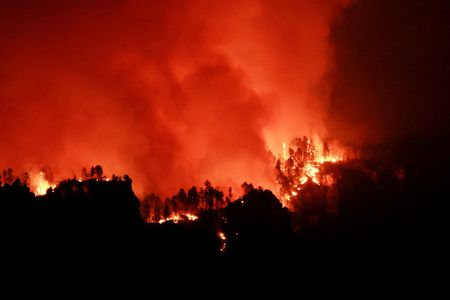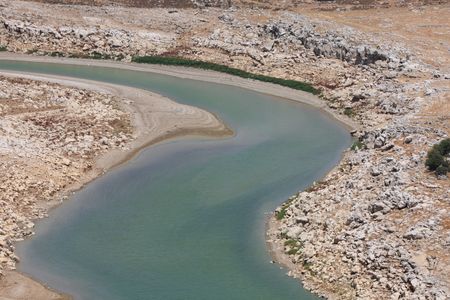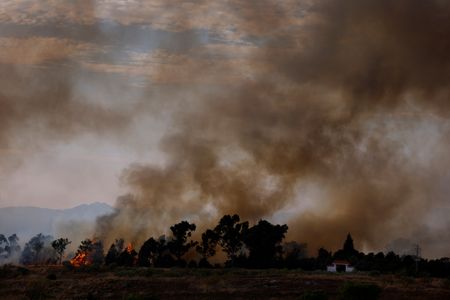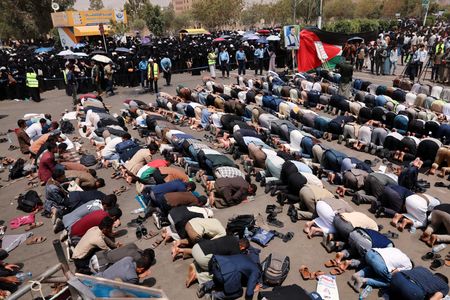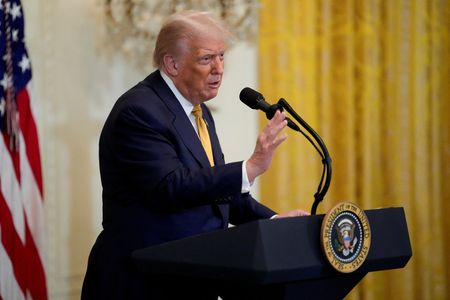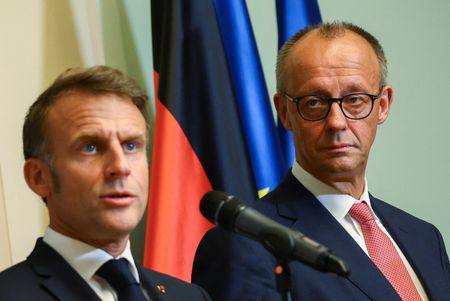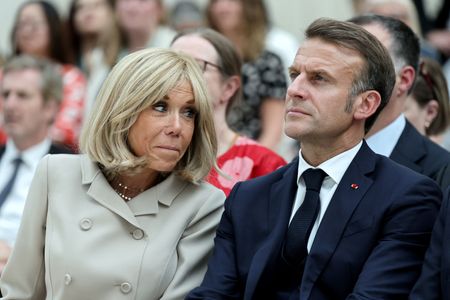By Stephanie van den Berg and Alison Withers
THE HAGUE (Reuters) -The United Nations’ highest court on Wednesday told wealthy countries they must comply with their international commitments to curb pollution or risk having to pay compensation to nations hard hit by climate change.
In an opinion hailed by small island states and environmental groups as a legal stepping stone to make big polluters accountable, the International Court of Justice said countries must address the “urgent and existential threat” of climate change.
“States must cooperate to achieve concrete emission reduction targets,” Judge Yuji Iwasawa said, adding that failure by countries to comply with the “stringent obligations” placed on them by climate treaties was a breach of international law.
The court said countries were also responsible for the actions of companies under their jurisdiction or control.
Failure to rein in fossil fuel production and subsidies could result in “full reparations to injured states in the form of restitution, compensation and satisfaction provided that the general conditions of the law of state responsibility are met.”
“I didn’t expect it to be this good,” Vanuatu’s Climate Minister Ralph Regenvanu told reporters after the unanimous opinion by the ICJ, also known as the World Court, was read out.
Vishal Prasad, one of the law students that lobbied the government of Vanuatu in the South Pacific Ocean to bring the case to the ICJ, said: “This advisory opinion is a tool for climate justice. And boy, has the ICJ given us a strong tool to carry on the fight for climate justice.”
U.N. Secretary-General Antonio Guterres hailed the opinion and said it affirms that the Paris climate agreement goal needs to be the basis of all climate policies.
“This is a victory for our planet, for climate justice, and for the power of young people to make a difference,” he said. “The world must respond.”
HUMAN RIGHT TO CLEAN ENVIRONMENT
Judge Iwasawa, who presided the panel of 15 judges, said that national climate plans must be of the highest ambition and collectively maintain standards to meet the aims of the 2015 Paris Agreement that include attempting to keep global warming below 1.5 degrees Celsius (2.7 Fahrenheit).
Under international law, he said: “The human right to a clean, healthy and sustainable environment is essential for the enjoyment of other human rights.”
While the decision was stronger than most expected, its impact may be limited by the fact that the United States, the world’s biggest historical greenhouse gas emitter, and second biggest current emitter behind China, has moved under President Donald Trump to undo all climate regulations.
“As always, President Trump and the entire administration is committed to putting America first and prioritizing the interests of everyday Americans,” White House spokeswoman Taylor Rogers told Reuters in response to the opinion.
With scepticism over climate change spreading in the U.S. and elsewhere, Judge Iwasawa laid out the cause of the problem and the need for a collective response in his two-hour reading of the court’s opinion.
“Greenhouse gas emissions are unequivocally caused by human activities which are not territorially limited,” he said.
Historically, rich industrialised countries have been responsible for the most emissions. Iwasawa said these countries had to take the lead in addressing the problem.
POLITICAL AND LEGAL WEIGHT
The court’s opinion is non-binding, but it carries legal and political weight and future climate cases would be unable to ignore it, legal experts say.
“This is the start of a new era of climate accountability at a global level,” said Danilo Garrido, legal counsel for Greenpeace.
Harj Narulla, a barrister specialising in climate litigation and counsel for Solomon Islands in the case, said the ICJ laid out the possibility of big emitters being successfully sued.
“These reparations involve restitution — such as rebuilding destroyed infrastructure and restoring ecosystems — and also monetary compensation,” he said.
TWO QUESTIONS
Wednesday’s opinion follows two weeks of hearings last December at the ICJ when the judges were asked by the U.N. General Assembly to consider two questions: what are countries’ obligations under international law to protect the climate from greenhouse gas emissions; and what are the legal consequences for countries that harm the climate system?
Developing nations and small island states at greatest risk from rising sea levels had sought clarification from the court after the failure so far of the 2015 Paris Agreement to curb the growth of global greenhouse gas emissions.
The U.N. says that current climate policies will result in global warming of more than 3 C (5.4 F) above pre-industrial levels by 2100.
As campaigners seek to hold companies and governments to account, climate‑related litigation has intensified, with nearly 3,000 cases filed across almost 60 countries, according to June figures from London’s Grantham Research Institute on Climate Change and the Environment.
(Additional reporting by Bart Meijer, Valerie Volcovici, Zoran Mikletic; Writing by Ingrid Melander and Stephanie van den Berg; Editing by Barbara Lewis, Philippa Fletcher and Daniel Wallis)

